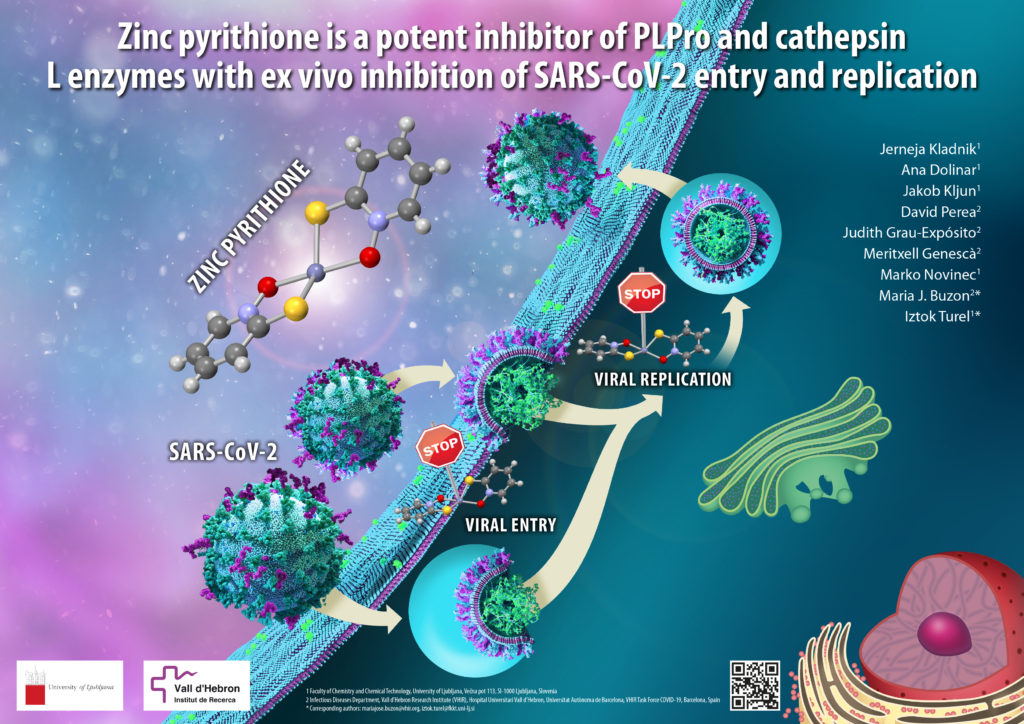Over the past two and a half years, the SARS-CoV-2 coronavirus has greatly affected all of our lives. In addition to the rapid development and approval of various vaccines, research has also been conducted on therapeutic options to treat the COVID-19 disease. Oral medications that patients could simply use at home are especially desirable. We have prepared and tested zinc compounds that have proven to be very effective against the SARS-CoV-2 virus. The results are also interesting because one of the compounds tested, zinc pyrithione, has been known for a long time and has been shown to have antimicrobial properties (it is used in shampoos to treat dandruff caused by fungi of the Malassezia genus). Studying the use of already known agents to treat other diseases is currently a very popular strategy, as it can significantly shorten the drug approval process.
Zinc is an essential element vital for the functioning of humans and other living organisms and is involved in many biological processes. During the COVID-19 pandemic, much of the research focused on studying the importance of this element or, more specifically, zinc compounds. Zinc was also found to be important in the functioning of the SARS-CoV-2 virus. The researchers found that some zinc compounds effectively inhibit the enzymes cathepsin L and PLPro, which allow the virus to enter cells and replicate, respectively. Based on these encouraging results, our Spanish collaborators confirmed the highly potent antiviral activity of zinc pyrithione in an ex vivo system derived from primary human lung tissue. The results of this collaborative research were recently published in the Journal of Enzyme Inhibition and Medicinal Chemistry, and further research in this area is ongoing. The discovery of the inhibitory effect of zinc compounds on coronavirus is important to better understand how the virus works and to facilitate the development of potential zinc antiviral drugs. News of this discovery has also been reported on national television [https://365.rtvslo.si/arhiv/prvi-dnevnik/174893819] (appears between 5:40-7:40 min) and elsewhere.
Five scientists from our Faculty and four from Spain were involved in the research: Jerneja Kladnik, Ana Dolinar, Jakob Kljun, David Perea, Judith Grau-Expósito, Meritxell Genescà, Marko Novinec, Maria J. Buzon and Iztok Turel. This study, which lasted just over a year, was financially supported by the Slovenian Research Agency (ARRS).
The figure shows zinc pyrithione inhibiting the entry of SARS-CoV-2 virus into the cell and its replication (illustration by academy-trained painter Simon Kajtna).
Link to the article: https://www.tandfonline.com/doi/full/10.1080/14756366.2022.2108417.
